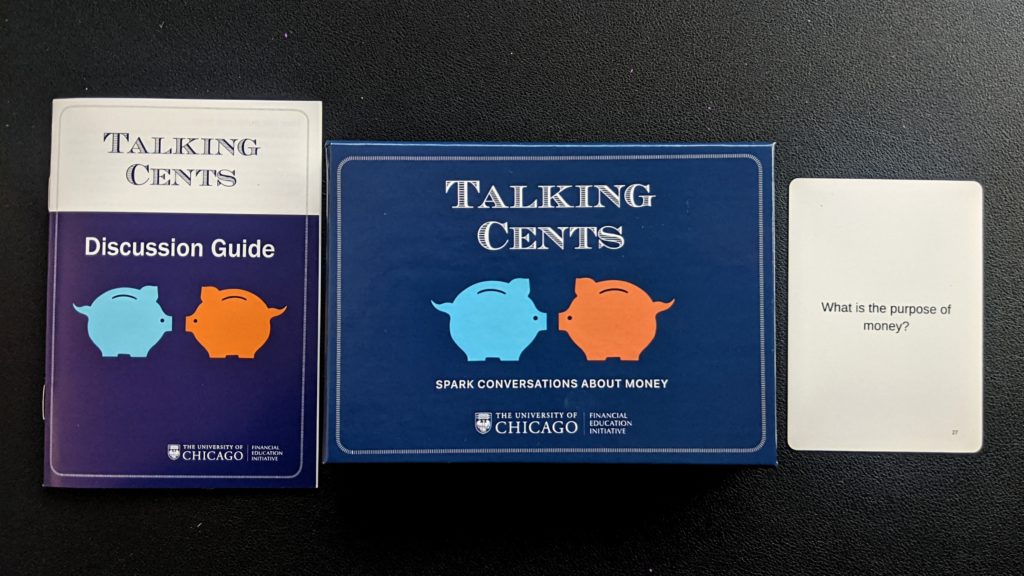We didn’t talk about money much in my family when I was growing up. Like many households, it was kind of a taboo subject.
But research from the Money Advice Service, suggests that money habits (both good and bad) can be set as early as age 7. Core money behaviours learned at home subconsciously or otherwise, are carried into adulthood, affecting financial decisions forever. So, shouldn’t we talk about money at home more often?
Yes, but it’s daunting, especially if you don’t consider yourself to know much. My own personal experiences, subsequent qualifications, and first-hand encounters advising families with different dynamics, regularly confirms to me how wide-ranging, visceral, and complicated the subject of money really is. No wonder people avoid it!
There is of course the rational, computational side of money, which includes maths, spreadsheets, and the knowledge of how compound returns work. But there is also the lesser appreciated, softer, psychological side of money, which includes emotions, identifying goals and finding a purpose. To be good with ‘money’, you really need to be well versed in both.
And for me, Brian Portnoy, the author of The Geometry of Wealth, distilled the broad subject of ‘money’ best, into one simplified definition.
“True wealth is funded contentment. It is the ability to underwrite a meaningful life – however you choose to define that.”
And a content, meaningful life, is the part most young, and many older, people need help with.
Social media and the internet impress upon everyone, but especially young people, the perceived status elevation to be gained from being ‘rich’. But does being rich really make you happy?
Up to a certain point, maybe. Often cited research suggests that $75,000 / £57,000 income per annum, in 2010 terms, is enough to be happy. Hardly rich.
And a recent piece in The Guardian, written by a therapist to the truly rich, describes a whole set of new worries. Even if you are lucky enough to be rich, it’s not always the comfort people think it will be.
So, I vowed a long time ago, to make sure my children got balanced conversations about ‘money’ at home. No. Not how to invest, or how to calculate Annual Percentage Rates. But broader questions to make them think more deeply about money. Questions like:
“What career would you choose if all careers made the same amount of money?”
Or:
“What is the purpose of money?”
With the follow-up question always being:
“Why?”
Fortunately, these and 106 other great conversation starters about ‘money’ for use at home, are included in a box of cards called ‘Talking Cents’. They’re based on rigorous academic research and produced by the Financial Education Initiative, part of The University of Chicago. They’re specifically designed to tackle financial literacy.
I bought a pack last year after a conversation I’d had with their Director, Rebecca Maxcy, about financial literacy in schools. And after almost a year of using the cards with my 13 and 11 year old, you wouldn’t believe some of the conversations we’ve had. I’ve been periodically amazed (and occasionally dismayed!) at the stuff they already know. But I also enjoy listening to the way they formulate responses to the topics brought up by some of the cards hidden connections to money.
We don’t use the cards often. It’s not supposed to be a chore. But when we do, one of my two will randomly select a card, usually after a weekend dinner. A time when we’re relaxed, talkative and just finishing our dessert or last glass of wine.
And the great thing is, there are no wrong answers. Everyone has a different perspective based on how they see the world. So, the point of the cards isn’t for me to jump in to correct ‘wrong’ answers (I admit I struggled with this for a while), but for my wife and I to have open, enjoyable, inclusive conversations with the children that frequently branch out in other directions.
“The cards encourage us all to think about how we view money, providing insight to our family’s thoughts and feelings.”
Honestly, if you ask your family a well-constructed ‘money’ question, you’ll be surprised at where it can lead.
It’s been a success in my home. It’s got to the point where my daughter occasionally asks me if we can read a card!
Whether you have toddlers, teenagers, independent children or grandchildren, conversations about all aspects of ‘money’ are increasingly important. If you don’t have conversations, you’re leaving your loved ones to fend for themselves, often using self-harming content from the internet. Or worse. From financially illiterate friends.
I wish I’d had more money conversations when I was younger. It might have saved me from a few mistakes in my adolescent years. I know I can’t control my own children’s future money habits, but I’ll do my best to support them.
‘Talking Cents’ is definitely helping me do that. And it could be of help to your family too.
Follow me on Twitter @AlexandreRiley
‘Talking Cents’ are available to order at Financial Education Initiative
If you have children below the age of 7, I’d also recommend The Opposite of Spoiled. A book by Ron Lieber.


One response to “Talking Cents”